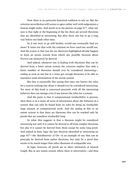Now there is no particular historical tradition to rely on. But the criterion nevertheless still seems to agree rather well with judgements a human might make. And much as in the picture on page 817, what one sees is that right at the beginning of the list there are several theorems that are identified as interesting. But after these one has to go a long way before one finds other ones.
So if one were to go still further, would one eventually find yet more? It turns out that with the criterion we have used one would not. And the reason is that just the six theorems highlighted already happen to form an axiom system from which any possible theorem about Nands can ultimately be derived.
And indeed, whenever one is dealing with theorems that can be derived from a finite axiom system the criterion implies that only a finite number of theorems should ever be considered interesting—ending as soon as one has in a sense got enough theorems to be able to reproduce some formulation of the axiom system.
But this is essentially like saying that once one knows the rules for a system nothing else about it should ever be considered interesting. Yet most of this book is concerned precisely with all the interesting behavior that can emerge even if one knows the rules for a system.
And the point is that if computational irreducibility is present, then there is in a sense all sorts of information about the behavior of a system that can only be found from its rules by doing an irreducibly large amount of computational work. And the analog of this in an axiom system is that there are theorems that can be reached only by proofs that are somehow irreducibly long.
So what this suggests is that a theorem might be considered interesting not only if it cannot be derived at all from simpler theorems but also if it cannot be derived from them except by some long proof. And indeed in basic logic the last theorem identified as interesting on page 817—the distributivity of Or—is an example of one that can in principle be derived from earlier theorems, but only by a proof that seems to be much longer than other theorems of comparable size.
In logic, however, all proofs are in effect ultimately of limited length. But in any axiom system where there is universality—and thus




